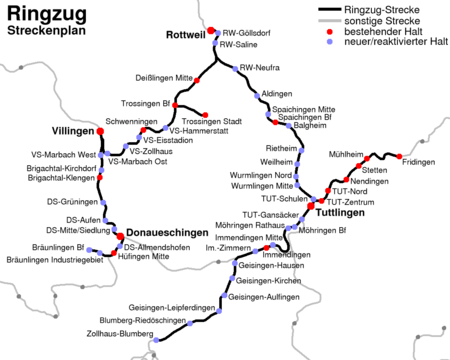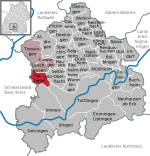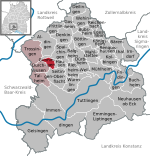Trossingen Railway
Railway lines in Baden-WürttembergRailway lines opened in 1898Tuttlingen (district)

The Trossingen Railway (Trossinger Eisenbahn, TE) is a DC-electrified branch line in the German state of Baden-Württemberg. The branch line has connected the town of Trossingen with Trossingen station, which is located on its periphery, since 1897. Trossingen station (formerly called Trossingen Staatsbahnhof—"state station") is on the Rottweil–Villingen railway. The railway is not part of the Deutsche Bahn network; instead it is owned by Stadtwerke Trossingen GmbH. This company formerly operated the railway, but since 2003, operations have been carried out by the Hohenzollerische Landesbahn (HzL). Freight operations were abandoned in 1996.
Excerpt from the Wikipedia article Trossingen Railway (License: CC BY-SA 3.0, Authors, Images).Trossingen Railway
Bahnhofstraße, Verwaltungsgemeinschaft Trossingen
Geographical coordinates (GPS) Address Nearby Places Show on map
Geographical coordinates (GPS)
| Latitude | Longitude |
|---|---|
| N 48.074 ° | E 8.6319 ° |
Address
Bahnhofstraße 9
78647 Verwaltungsgemeinschaft Trossingen
Baden-Württemberg, Germany
Open on Google Maps








